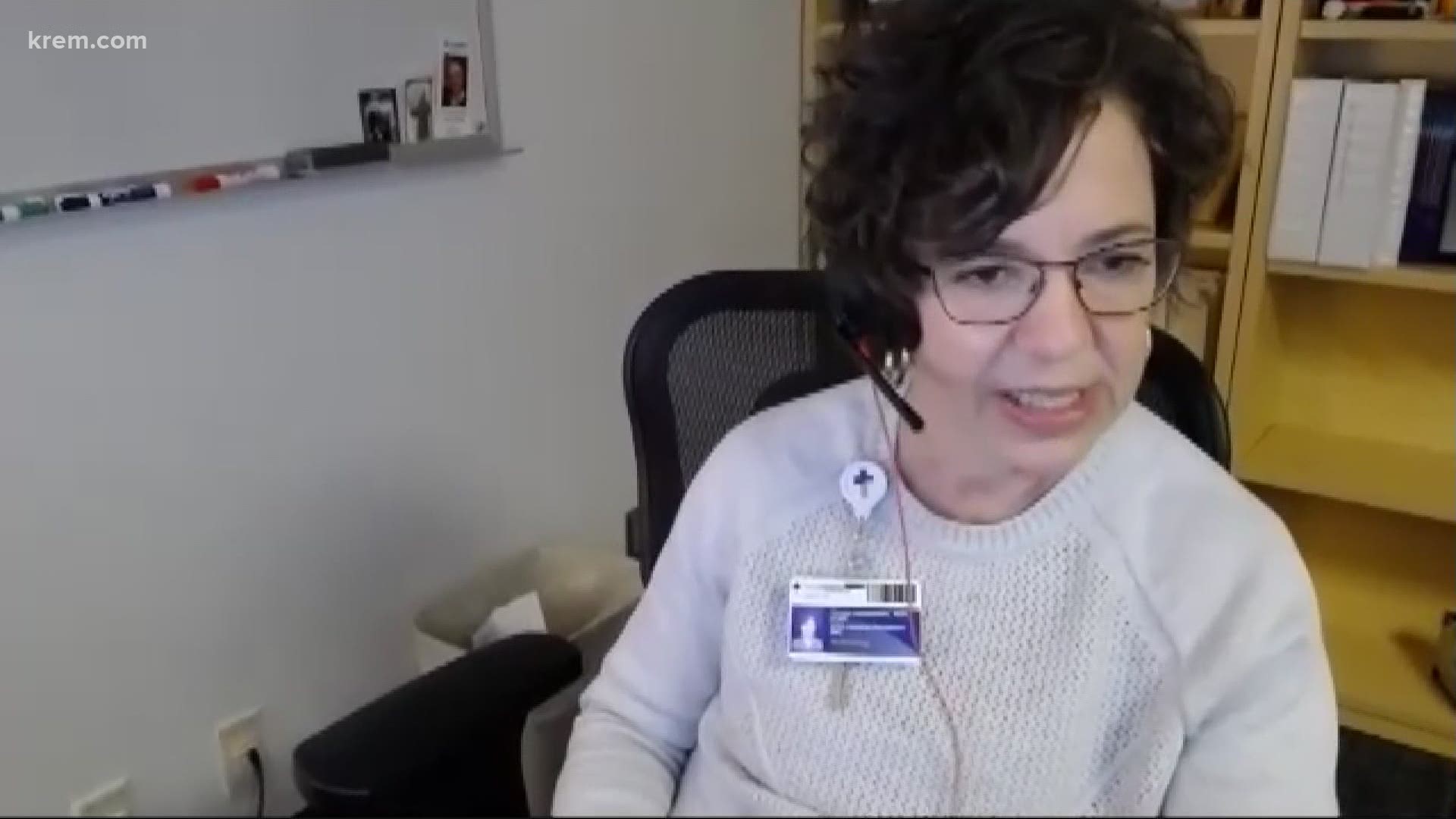SPOKANE, Wash. — Nearly a year has passed since Christa Arguinchona fielded some of her earliest questions about four coronavirus patients headed to the Inland Northwest.
"That day, in many respects, feels surreal," said Arguinchona.
In preparation for some of her earliest questions from local journalists and members of the community, Arguinchona said she remembers looking back at some of the educational material published by caregivers in three other American hospitals, who took in some of the Ebola patients during the 2014 and 2016 Ebola outbreaks.
"I think I felt a lot of the things that they felt as well on that day," reflected Arguinchona. "There was so much concern and fear and questions, because we just didn't know much about this pathogen."
Arguinchona looked at her own unit as a microcosm of the medical field as a whole: caregivers and medical specialists all working as quickly and effectively as possible to learn more about COVID-19, and to shift from being a focused, specialized unit into finding the best way to contribute to the community of Eastern Washington.
"That part was really challenging," Arguinchona said. "Learning something new, then educating everybody to it, and then all of the caregivers throughout the hospital adapted to that."
But it wasn't her crew's adaptation that stood out most to Arguinchona as their greatest strength over the past year. It was their compassion.
"I think there's an increased level of appreciation for each other, because we've all experienced that same level of fatigue, and really the endurance that it's taken," said Arguinchona. "And we're not done! So I think that's been pretty inspiring to watch."
But 2020 also granted Arguinchona some perspective as both a nurse and a mom, as she watched her own daughter enter the medical field during the COVID-19 pandemic.
"Watching her on-board into the medical field, in the midst of this COVID pandemic, I said 'Hey this is your chance. We need people like you,'" she said. "And we really do. We need those compassionate, energetic people that enter into medicine. It's an amazing field. I've been a nurse for over 30 years and I look at everything I've learned over this last year, it has really been amazing."
Looking ahead, Arguinchona said this past year has really stressed the importance of having a well-prepared plan for the future, including more P-P-E supplies that are more readily available.
When asked what kind of advice she'd give to herself, her fellow medical panelists, and the community across Inland Northwest one year ago, she gave advice that she said still applies today:
"Pace yourself, and trust the science."

